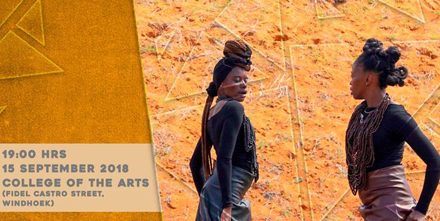
Offbeat
Trafficking, the transaction in which ownership of a human being is transferred, be it a baby or child, a worker or a sex worker, for whatever purpose, is equally revolting.
Testosterone comes early. Feeling manly, at about the age of ten, just having seen one of those exciting war movies, I dared to tell my mother that making coffee was not a man’s job, and that I was not her slave. I would have thought that her response would have been enough karmic retribution, but my daughter echoes me from all those years back. Apparently chores are a form of slavery.
Slavery is a preoccupation at the moment. If you look at mainstream web media, you will see that it is not just me though. CNN and Al Jazeera are both featuring the topic. Personal liberty has rarely been so much in the spotlight. Although various crisis are reverberating around the world, and an economic apocalypse seems to lurk around every corner, the media is worthily sticking to its guns and carrying the torch.
Knowing about slavery is a web phenomenon. In my childhood, I was told that the American civil war put an end to it: we watched ‘Roots’, were shocked, and were glad it was over. Now it resurges, dressed up as ‘trafficking’, a word with less of the ugly older connotations, but ugly as can be, nonetheless. It’s mutton dressed as lamb.
At its root, slavery is ownership of a human. There are instances in which it might in some way be initiated by consent of the one who is to become the slave, but that is where the consent ends. Everything that follows, the denial of rights and dignities is unimaginable. Trafficking, the transaction in which ownership of a human being is transferred, be it a baby or child, a worker or a sex worker, for whatever purpose, is equally revolting.
One of the difficulties with the concepts of slavery and trafficking are that the waters are muddied by the transactional element. It is easy enough to fix on the exchange of money as the symptom of the evil, or the misery of the victim, but the sickness actually lurks in the combination of traits and circumstances that leads a person to want to own and dominate another.
The best place to see it is, surprisingly, in the school yard, particularly in the early years. Young children are rarely cunning enough to mask the disturbing aspects behaviour. If you watch carefully, or probe your kids with questions, you will find a series of transactions that are all too common.
“If you do that, I will give you this.”
“If you don’t do what I want I will find a way to hurt you, physically, socially, mentally or by depriving you of the thing that you most want.”
Some children just don’t grow out of it. They go on to become badly flawed adults, corrupted and loveless souls, damaged at best. But trafficking is not just limited to individuals. More often than not, it requires a vast network of resources. A recent report on BBC pointed to trafficking of 300,000 infants in Spain, with the collusion of the church and civil authorities. There is almost ‘nothing new’ in the revelation. It has happened throughout history. Recent examples include removal of children in Nazi Germany, Australia and Argentina.
The thing which should not amaze me, but which always does, is the absence of guilt, the rationalisation by sick people that the transfer of souls has some moral basis.
What CNN and Al Jazeera are doing, is a departure from the norm. Global media brings global awareness. Sitting here, in Namibia, I know about the baby factory in Nigeria, the woman who kept slaves in her house in Atlanta, child labour in Asian sweatshops and the people found in a house in the United Kingdom.
Global recognition is one of the prerequisites for global change: thanks to web media, I can be angered along with millions of others. The problem lies in dealing with the perpetrators. The law is not enough if there is tacit acceptance.
The obvious solution for now is to hold perpetrators up to the light. Things that operate in the shadows can be hidden, even appear dangerous enough to avoid. When the shadows are dispelled, they often look like little more than revolting things.
I hope the media attention changes things soon.











































